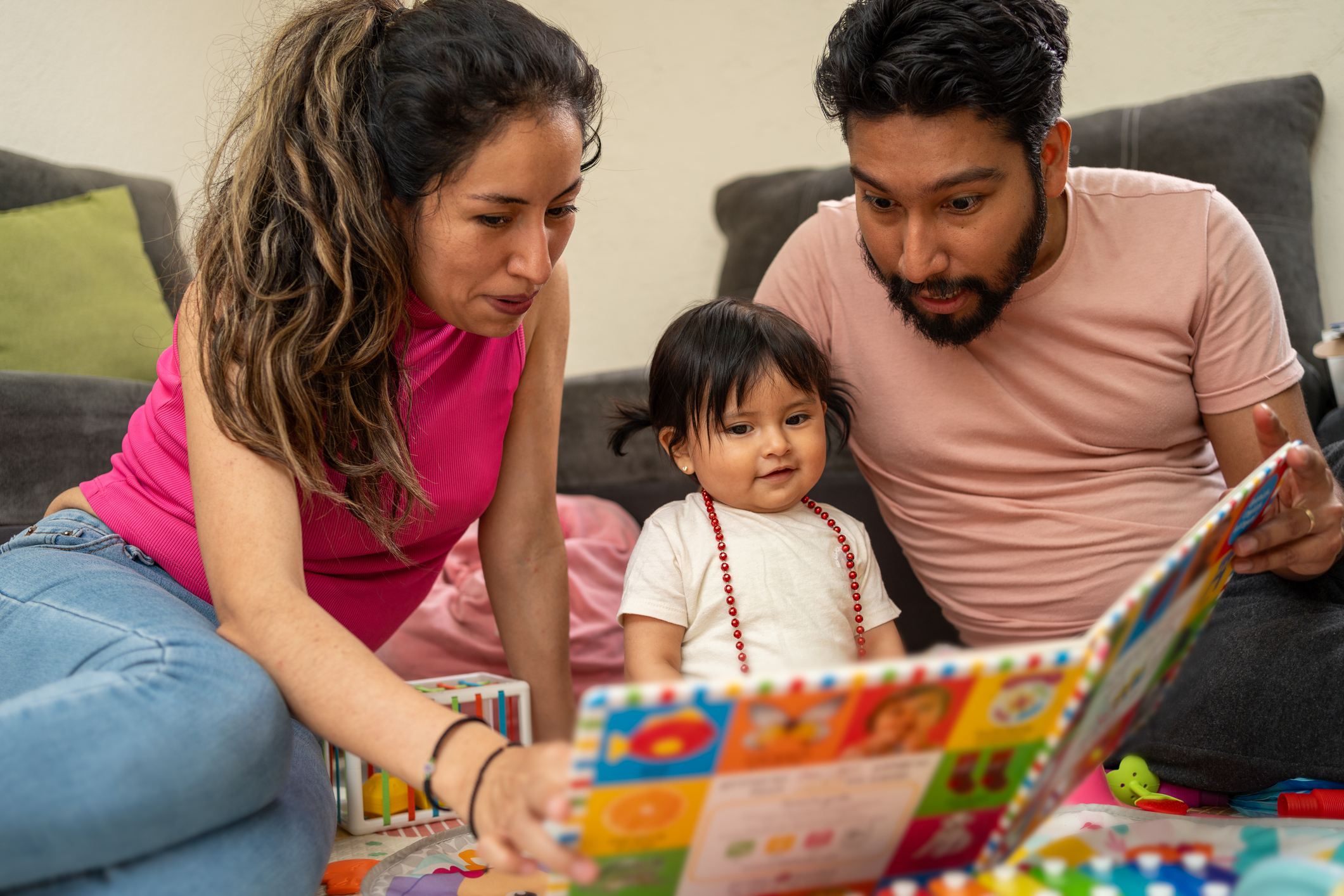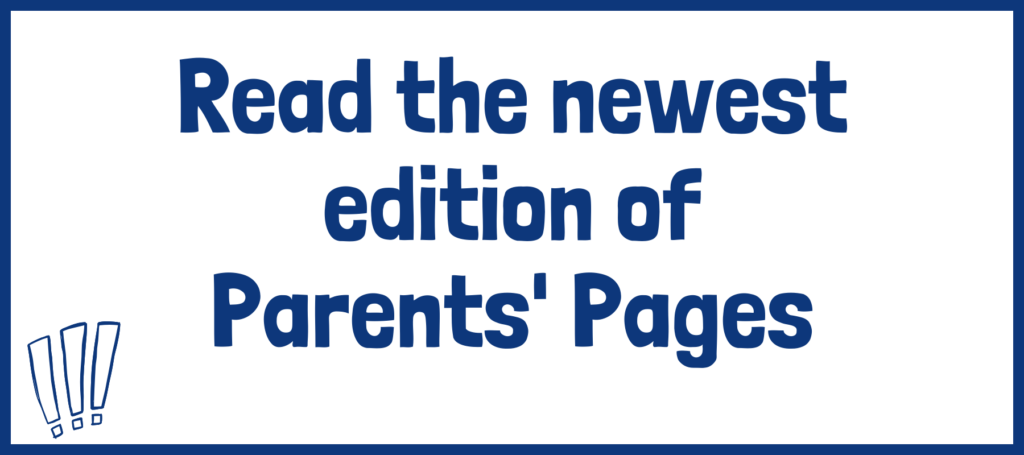As early as the beginning stages of pregnancy, talking and reading to babies in the womb helps them learn to recognize their parents’ voices while starting to build a foundation for early literacy. Consistently talking and reading to infants and toddlers enhances their early literacy and vocabulary development. Infants and toddlers whose parents talk and read to them often know more words by age two than children whose parents do not. Reading about numbers and shapes lays the foundation for math and geometry.
Asking babies questions while you read a story provides opportunities for them to use their imagination and expressive language to answer. Posing simple challenges and helping babies find ways around them helps develop their problem-solving skills. In conversation, use expressive tones and use metaphors such as “you are a busy bee” or idioms like “sleeping like a baby” then pause for reactions. It is also beneficial to sit at the eye level of an infant or toddler when interacting and speaking with them.
These types of exercises expand their vocabulary and allow them to explore new words. Babies’ vocabularies build slowly, and nouns are used first, such as “kitty,” “puppy” and “cracker.” Gradually, they add verbs and adjectives, forming partial sentences like “want big book.”
It is fascinating how much infants and toddlers learn in the first few years of their lives! From the very beginning, simple conversations and reading to children lay the foundation for language development. By the time they reach third grade, children should be able to fluently read words and comprehend what they are reading, which is a milestone in their literacy journey.
Early childhood education is the foundation of child development and a very important time in children’s lives.


